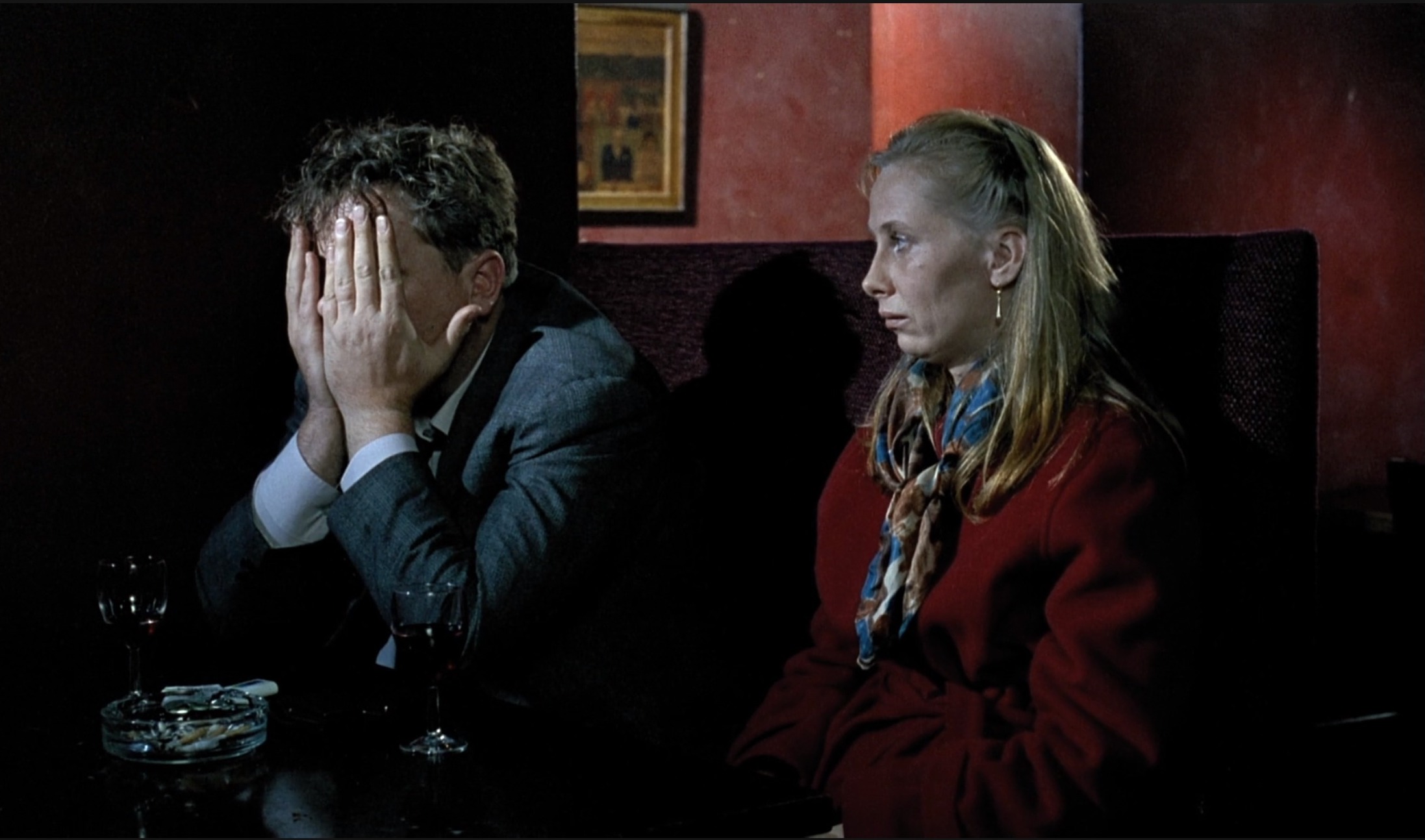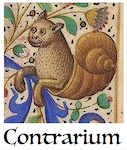How to survive harsh times in an increasingly difficult world
If you should watch just one film by Aki Kaurismäki, I suggest “Drifting Clouds” (1996), which is probably his masterpiece. Well, to be honest, I haven’t watched a lot of his movies, but it’s the best from the four or five I’ve seen so far, both in technical terms — cinematography, camera, art direction — as in the balanced use of humour and pathos. Wonderful colours (no grey Helsinki here), and, as usual for Kaurismäki, excellent use of music, both classic and popular, including, of course, Finnish tangos.
The story, such as it is, is about a working-class couple falling in hard times, due to mutual unemployment and a growing economic crisis. But there isn’t really a “plot” in Hollywood terms, as the film is mostly made up of little sequences which are almost independent of each other, showing the cumulative disasters that the couple, and a few other people, have to go through in order to… merely go on living.
Is it a drama? Is it a comedy? Hard to say. It seems almost unbearably bleak at times, and yet, it does have many gags and even an optimistic feeling. Perhaps it is even the most optimistic film of this notoriously pessimistic Finn. The scene where they have their loan request rejected is both one of the saddest and funniest — “Banks don’t take risks!”
Kaurismäki: “When I started working on Drifting Clouds, I looked for Frank Capra’s emotional story of salvation, It’s a Wonderful Life, on one side, Vittorio De Sica’s Bicycle Thieves on the other, and the Finnish reality somewhere in between.” (I would also add Robert Bresson as an influence, and in fact a poster of “L’Argent” by Bresson appears at one point.)
Kati Outinen plays the wife, Ilona, and Kari Väänänen plays the husband. The role was supposed to be played by Matti Pellonpää, from Shadows in Paradise, to which this film was going to be a sequel, but he died just before shooting started, at only 44 years of age. Almost like the characters that he played in movies, Pellonpää (who also appears in Jim Jarmusch’s Finnish sequence in “Night on Earth”) lived constantly drunk and in debt. He managed to pay his last debts thanks to an advance payment he received to star in this film, but he died shortly afterwards. At least, he died debt-free. A very Kaurismäki-like ending, I suppose. The film is dedicated to him.
Drifting Clouds is, at the same time, a very Finnish and a very universal film.
At a time when recession seems to be rearing its ugly head again, and lots of people will probably go through what this couple goes through (or worse), there is much here to identify with.
Many European countries are right now heading into a recession. Even mighty Germany is predicting economic doom. In the United States, inflation is worse than it has been in ages, and homelessness and drug addiction are at all time highs. Just go to any major city, from New York to Seattle, you will see it.
And it’s not only the U.S. and Europe. Argentina is in an economic crisis that resembles the 2001 one and might even be worse, and most of South America appears to be heading into economic or political turmoil. War between Ukraine and Russia still rages, with thousands of Slavic young men killing each other for no fathomable reason, and other possible conflicts (Serbia vs. Albania? China vs. Taiwan?) also seem to be instigated here and there.
A storm, maybe even a hurricane, is coming. Most people don’t seem to realize it, or, if they do, it is just with a general, abstract feeling, like someone who sees dark clouds in the horizon but thinks they are too far away, and even takes a photograph thinking they have some droll shape.
HAMLET: Do you see yonder cloud that’s almost in shape of a camel?
POLONIUS: By th’ mass and ’tis like a camel indeed.
HAMLET: Methinks it is like a weasel.
POLONIUS: It is back’d like a weasel.
HAMLET: Or like a whale.
POLONIUS: Very like a whale.
How to get through hard times, then?
The lesson from the movie seems to be: do your best to survive with what you have, but never stop dreaming. Things are bad now, they might become even worse in the future, but they may also unexpectedly get better. Clouds come and go. It’s grey now. It will rain later. But the sun will return one day.
As a character at one point says, with unbridled Finnish optimism:
“Life is short and miserable. Better enjoy it while you can”.





“Life is short and miserable. Better enjoy it while you can”.
This reminds me of a line from the Russian Fairy Tale, “The Firebird and Princess Vasilisa.” The protagonist, a young archer, keeps getting into trouble, and each time he does, he is consoled by his horse:
“Weep not, grieve not! This is still not trouble – the real trouble lies ahead!”
And of course, the horse is always right.
Happily, the story does end well for the archer (and his horse). But I suppose part of the point is that you have to go through certain tribulations to reach that happy ending. As you say, Tom, something to think about during our dire times.